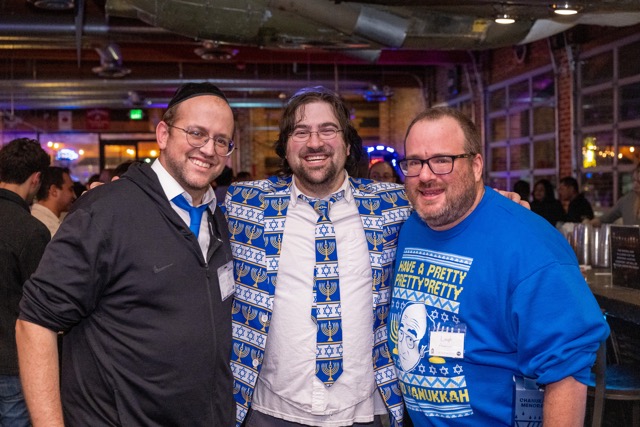What does it mean to be asked for forgiveness and to say no? What does it mean? What does it mean when someone begs you to absolve them of their wrongdoings, and you exercise your power to deny them that absolution? What does it mean when someone owes you a debt, and you refuse them the opportunity to pay it, because it is your wish that they remain in your debt? Is it conscionable? Is it ethical? Is it morally defensible to take such a position? Is it acceptable to look someone who has come to you, in good faith, to beg for forgiveness, and say to them: “Denied?”
The answer to this, like to any question, depends on a great range of circumstances,* but the story of this week’s parshah, however, offers us a way in to exploring our responsibility to those who seek our absolution.
Let’s pick up the story. Joseph’s ten brothers, who once threw him in a pit, which resulted in his enslavement in Egypt, are now at his mercy. How the tables have turned. They have been detained for thievery, for a stolen item of value has been found among Benjamin’s belongings. They face capital punishment at Pharaoh’s hand. What can they do, but beg for their lives? Pharaoh delegates the matter to his Chief Viceroy, who unbeknownst to Judah and his brothers, is their brother Joseph. Judah steps up to represent the brothers, and be their chief negotiator. Judah, the leader, the man prophesied to be the ancestor of the Messiah, begs for clemency for his young brother, Benjamin. He offers to give Joseph anything he wishes, if only he would spare Benjamin. Judah’s pleas are so soulful that he even offers himself as a substitute. “Take me instead,” he says to the man he does not know is Joseph.
Despite himself, Joseph is moved. We might imagine that an average person in Joseph’s position would want to be hard on the brothers who caused him so much strife in life, but Joseph takes a different path. He simply breaks down in front of Judah’s pain. “I am Joseph, your brother,” he finally says. The family is reunited, and the brothers rejoice. Joseph even requests that they bring their father, Jacob, to Egypt to survive the famine.
Now we come to our inflection point. Seventeen years have gone by since Joseph’s brothers set into motion a nasty series of events that led to his imprisonment and enslavement in Egypt. What to do with that fact? Joseph removes the responsibility for his pain from the shoulders of his brothers. “It was not you,” he says to them, “Who sent me into slavery, but the Almighty God,” who did it for a very good reason. The weight of remorse is alleviated from his brothers. They know what they did, and they shall never forget it, but they see also that Joseph has found meaning in his life, a personal relationship with God, and the opportunity to save his family members from certain death. Their sins are not forgotten, but they are for the moment, set aside.
Joseph makes a choice. He chooses compassion. He chooses forgiveness. He chooses to rise above the natural human impulse for revenge, and instead grant his brothers the relief that only he can give. Forgiveness is not always the right answer in every situation, but it was the right decision for Joseph. He was able to leave the past behind, travel light into tomorrow, and take his entire family with him.
Shabbat shalom from your Sloan’s Lake Rabbi!
*Though not strictly connected to this week’s parshah, for an exploration of these themes, and for a serious meditation on these questions, I would recommend Simon Wiesenthal’s unique volume, “The Sunflower.” This is a non-fiction book in two parts. The first part is Wiesenthtal’s recollection of an unusual request he received while imprisoned in a Nazi death camp: A German guard called for Wiesenthal to stand by his deathbed, listen to his confession, and on behalf of the Jewish people, forgive the German guard for what he had done before the German guard died. The second part of the book is a collection of essays written by philosophers, religious leaders, and other deep leaders from around the world who share their opinions of Wiesenthal’s response to the Nazi camp guard, and their own views on forgiveness and reconciliation. The book is truly unique and a very worthwhile read.


